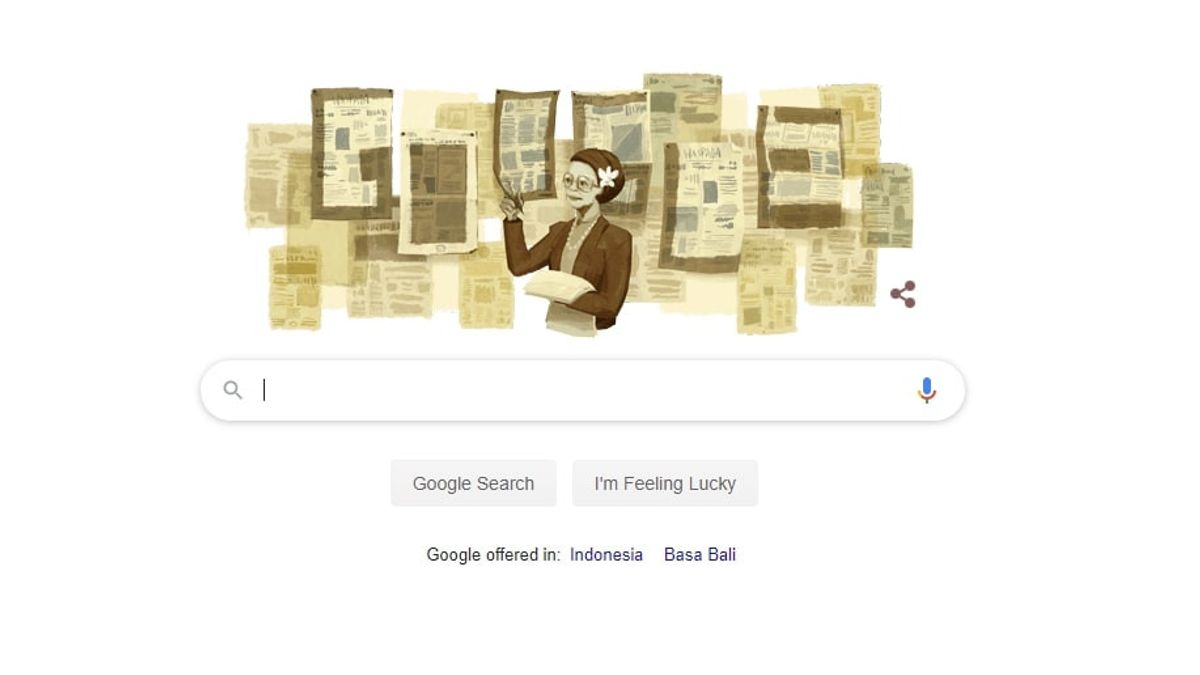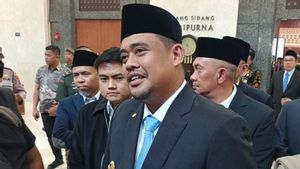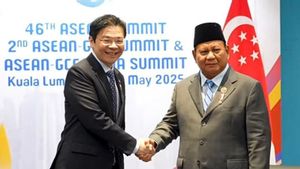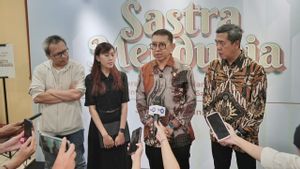JAKARTA - Google Doodle celebrates the birthday of a female character, Ani Idrus, today. She is a journalist born in Sawahlunto, West Sumatra on November 25, 1918. Through her writing, she actively voices issues of women and gender equality.
Ani lives in a family environment that belongs to a fairly good social status in society. His father is originally from Minang, while his mother is of mixed Javanese-Minang descent. Ani's father worked as an employee at a coal mining company and had attended a public school.
Little Ani lives in a matrilineal society with strict customs in Minangkabau. In a matrilineal society, women are the determinants of the survival of their families. The system encourages men not to be equally involved in the household. This, according to Siti Utami Dewi Ningrum in "Women Talking in Women's World Magazine: Gender Equality in Households in Indonesia, 1950s" (2018) often causes disharmony in the household.
In addition, the problem Ani was having at that time was polygamy. In 1930, it was noted that the level of polygamy in Minang was higher than in Java and Madura. According to population census data for that year, the Minangkabau polygamy rate reached 8.7 percent, while for Java and Madura only 1.9 percent.
Polygamy is a trial for Ani Idrus' parents. His mother chose divorce because her husband had a new wife. Ani and her brother live with her father. Little Ani lives with complete freedom, she can bathe in rivers and climb trees. Until one day he was scolded by his father for his behavior, that's when he began to question the difference between men and women.
In 1929 Ani chose to move and live with her mother in Medan. There Ani attended Methodist Girl School for 3 years, then continued on to Meisjeskopschool (Girls' intelligence school) for 3 years and to Tamansiswa Medan. At that time he became increasingly fond of reading and writing because he received support from his stepfather who subscribed to newspapers.
While attending school at Tamansiswa in 1934, Ani had started writing. He freelances for daily magazines.
Ani Idrus pays a lot of attention to women's issues and puts them into writing. His first work tells the story of a girl in Batavia who was sent to the Pandji Poestaka magazine in Batavia and was successfully published in 1930. Her success made Ani more confident and continued to develop her writing talent until she was an adult.
Voices of the Women's World
Ani lived in the colonial era. Women's voices have emerged since that era. One of them who is most famous for voicing the voice of women is Kartini.
Women's writings became louder with the presence of women's magazines in the colonial period, both those published by women's organizations and commercial magazines. Each of them has unique and diverse ideas.
One of the magazines is entitled The World of Women. Ani Idrus who founded it. The magazine presents various women's issues from the social, political to economic fields to provide information and progress for women.
Through the World of Women, Ani encourages women to know the existence of themselves and women's rights in filling independence, be it in politics, economy, social and family.
"That is why we published this madjalah because we are aware of the way to provide information in this madjalah, we can contribute to the advancement of women," said Ani Idrus in the foreword to the first issue of Women's World, June 15, 1949.
In the first issue of the magazine, Fatmawati became the main cover. Gadis Rasid, a member of the World Women's magazine staff, explained in this issue that even though the Women's World magazine is a women's magazine, men can also read it. According to him, there is no separation between men and women in society, even though there are several different interests such as what is written in the World of Women. Both of them must be active together to achieve happiness in society and fight for the ideals of the nation.
Ani's involvement in the Women's World she lived until 1961. Her career in the press reached its peak as the chairman of the Medan branch of the Indonesian Journalists Association. In 1953-1963 he also made various visits to Asian, European and Irian Jaya countries on his mission as a journalist.
Apart from the press world, Ani is also active in politics. She was active in PNI and Marhaenis Women from 1960-1967. In addition, he is also a member of the North Sumatra DPRD. She also served as Wasekjen of the North Sumatra National Front for women.
Ani breathed his last on January 9, 1999 in Medan City, North Sumatra.
The English, Chinese, Japanese, Arabic, and French versions are automatically generated by the AI. So there may still be inaccuracies in translating, please always see Indonesian as our main language. (system supported by DigitalSiber.id)









